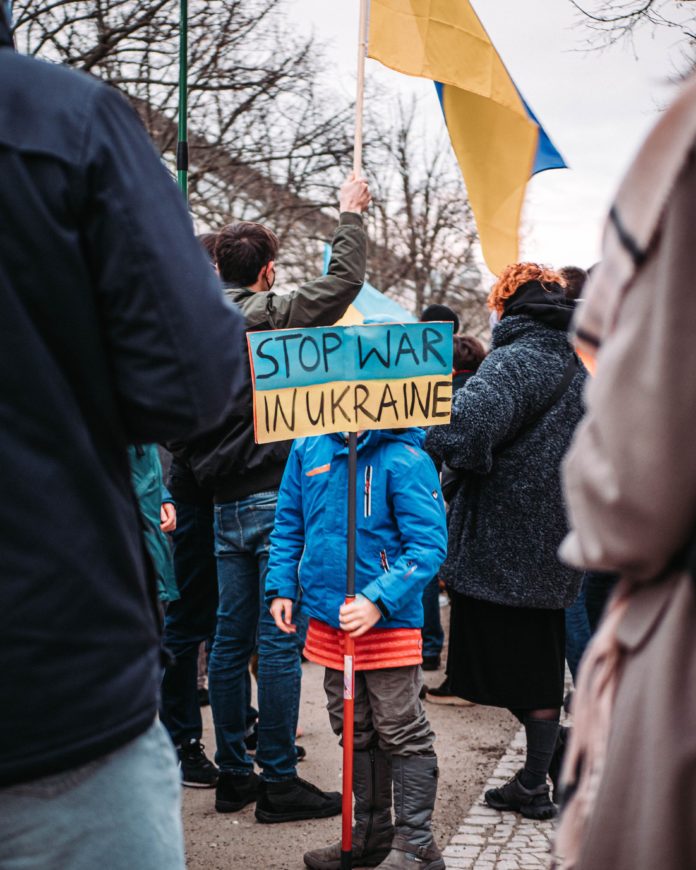By Theo Neethling, University of the Free State
South Africa’s foreign policy is aimed at contributing to democracy, human rights and justice in the world. Yet its conduct often suits autocrats and despots. This is why defence minister Thandi Modise’s recent attendance at the 10th Moscow Conference on International Security has sparked criticism.
The basic objectives of the conference are to share practical ideas and explore solutions on matters of global security. But Russian president Vladimir Putin’s swipe at the US and the North Atlantic Treaty Organisation in his welcoming address revealed an ideological underpinning. He accused them of “creating aggressive military-political unions” to maintain western hegemony.
Their hegemony means stagnation for the rest of the world and for the entire civilisation; it means obscurantism, cancellation of culture, and neoliberal totalitarianism.
South Africa’s stance towards Russia in recent months has come under severe criticism. Pretoria initially supported calls for Russia to withdraw from Ukraine, only to retract shortly thereafter.
Some critics object to the mere act of South Africa attending a military conference organised by an aggressive, imperialist Russia.
Some feel Pretoria is – as in the past – flip-flopping on its official commitment to promoting human rights globally.
Modise defended her participation as part of “an international peace crusade”. She said:
we will emerge from this conference stronger and more united in our determination to continue building a peaceful world.
The question is whether South Africa is once again turning a blind eye – even giving legitimacy – to a great injustice, for political expediency.
The country’s official foreign policy is explicitly guided by ubuntu (humanness) –
the idea that we affirm our humanity when we affirm the humanity of others.
Inconsistency and ambiguity
Since 1994 during the Mandela and Mbeki eras, the country has contributed to the reform of continental institutions. It has mediated for peace and stability, and promoted democracy in conflict-ridden countries.
For example, in 1995, former president Nelson Mandela issued a hard-hitting statement after the Nigerian government executed environmental activist and writer Ken Saro-Wiwa. This underscored a foreign policy informed by human rights.
In fact, South Africa’s contributions to the development of Africa’s foreign policy realm earned it the status of a “norm entrepreneur”. That means it set the norms for moral and principled international engagement and interventions on the continent.
But in the second term of the Mbeki era, foreign policy analysts posed serious questions about the country’s willingness to uphold the values of democracy and human rights in its foreign policy. The country has become less principled in its approach to world affairs. There have been inconsistencies and ambiguities, specifically when it is expected to stand up for human rights.
An example was former president Thabo Mbeki’s quiet diplomacy towards Zimbabwe since 2000. His refusal to speak out against atrocities during the Robert Mugabe era in favour of fruitless secret meetings was one such example. For many observers this was puzzling, coming from the continent’s most celebrated democracy. It became a source of domestic concern, global scepticism and outspoken criticism.
Later, under Mbeki’s successor, Jacob Zuma, the Libya conundrum in 2011 stood out. South Africa, then a non-permanent member of the UN Security Council, voted for a ban on all flights over Libya to protect civilians from attacks by the Libyan air force.
Yet, soon after it was the implemented, Pretoria backtracked. It appealed to international role-players to respect the territorial integrity of Libya. This dented South Africa’s credibility.
The country had to be goaded into accepting a no-fly zone, based on The Responsibility to Protect principle, to stop the Libyan leader Muammar Gadaffi from bombing his own population from the air.
Another controversy was sparked when, in 2015, Zuma hosted the African Union summit in Johannesburg. It was attended by then Sudanese president Omar Al-Bashir, who had been declared a “wanted war criminal” by the International Criminal Court for genocide in Darfur. Zuma’s government failed to arrest him despite a court order.
Zuma even accepted Al-Bashir’s invitation for him to visit Sudan. It was a clear indication that the Zuma government was willing to ignore gross human rights violations.
Currently, the South African government is not prepared to condemn Russia’s military invasion of Ukraine.
New hope for norm entrepreneurship
The Mbeki and Zuma eras were characterised by an unwillingness to confront authoritarian regimes and human rights abuses. Be it in Sudan, Zimbabwe and Eswatini, or further afield in Myanmar, Syria, China and North Korea.
When Cyril Ramaphosa became president in 2018, it was hoped he would restore South Africa’s status as a champion for peace and democracy globally. He came to office with good international relations credentials, having helped craft the UN’s Responsibility to Protect principle.
Of course, countries in the global south cannot be expected to automatically fall in line with western expectations on world issues.
But, South Africa’s refusal to condemn Russia’s aggression in Ukraine, and Modise’s visit to Moscow, make one thing clear once again. It is that South Africa’s foreign policy behaviour is not what was expected of the country as an international and regional norm entrepreneur.![]()
Theo Neethling, Professor of Political Science, Department of Political Studies and Governance, University of the Free State
This article is republished from The Conversation under a Creative Commons license. Read the original article.



